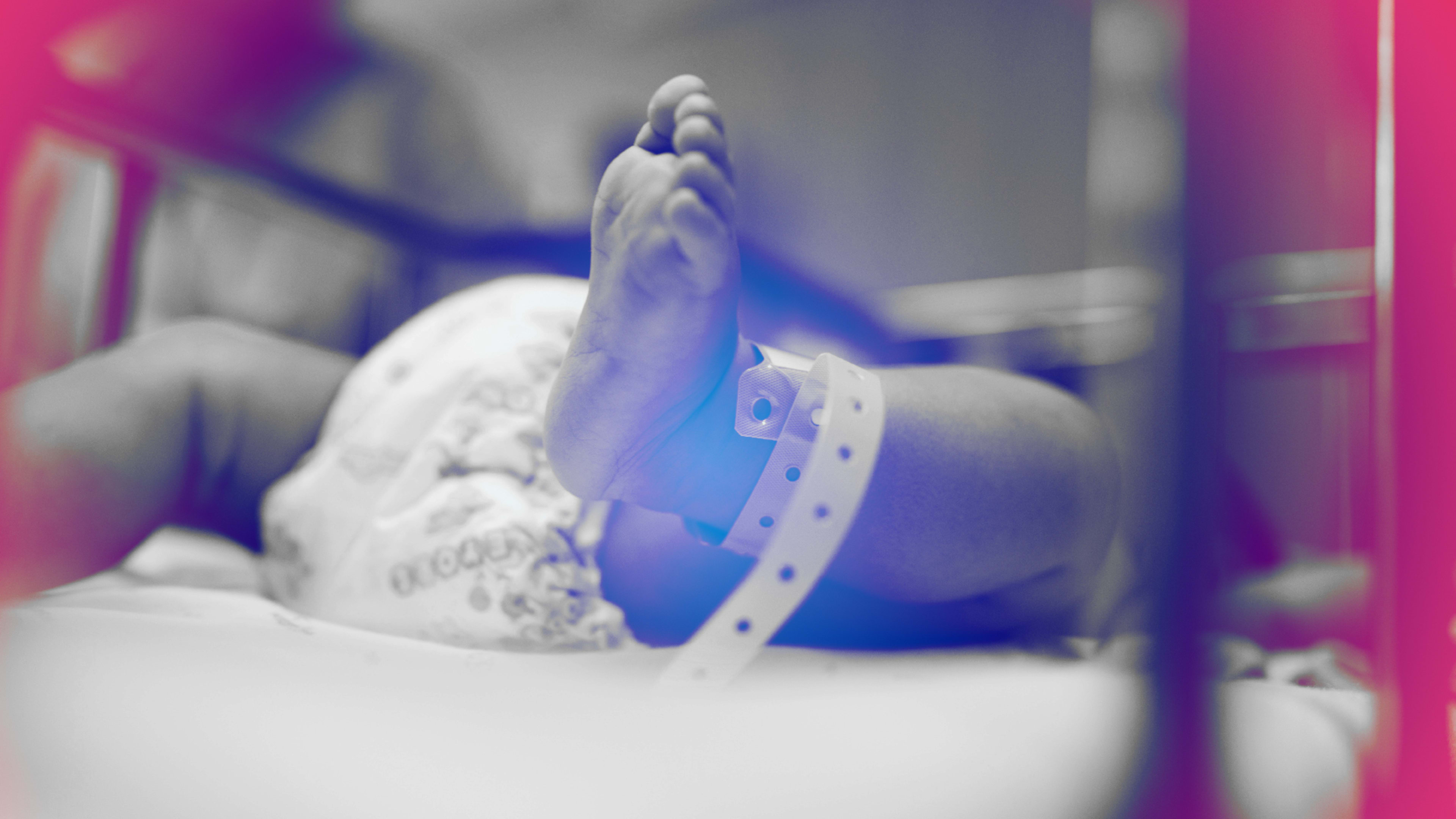With all the marvels of modern medicine, it’s assumed that babies born today are far luckier than those of previous generations in each and every way. But there’s one area in which infants might be at a disadvantage: gut health.
C-sections and the overuse of antibiotics have affected the supply of B. infantis, a friendly strain of gut bacteria that mothers once fully transmitted to their babies during the first six months of life. Things have changed in the last century, and recent studies estimate that fewer than one in 10 babies in America have this vital bacterium.
Without it, newborns are more vulnerable to autoimmune diseases such as eczema, asthma, and allergies. Gut health is also linked to later-in-life medical conditions, ranging from diabetes to colon cancer to Alzheimer’s disease.
Researchers have now found a way to detect the deficiency and supplement it. Evolve BioSystems, a privately held microbiome company that stemmed from the Foods for Health Institute at the University of California, Davis, is now able to identify shortages–with poop.
The team partnered with pediatrician offices and medical offices around the U.S. and requested new parents donate their dirty diapers for a study. Researchers then analyzed samples to develop a pediatric microbiome diagnostic tool to help identify bacterial deficiencies in infants. Evolve then created a prototype device–a rapid response test–to check for the important bacteria in a baby’s gut microbiome.
“It’s critical,” says Tanya Altmann, a pediatrician involved with the study. “We know that in the first six months of life, you really need this specific bacteria to help program the immune system and the metabolism.”
The test requires just a small sample of stool. Within 30 seconds, the test turns different colors responding to low or high doses of the bacterium. More than just analyzing levels, it’s also an actionable tool for parents to take control of their babies’ health. It comes with a form of activated B. infantis, which can be mixed with breast milk.
“It’s the first-of-its-kind, point-of-care test,” says Tim Brown, CEO of Evolve BioSystems. “We really believe it’s going to change the future of gut health for infants to get them off to the best start for the development of their immune system.”
The activated B. infantis ensures infants’ guts are colonized with good gut bacteria. In 100% of the clinical data cases, it decreased bad gut bacteria by roughly 80%, reports Altmann.
“These babies, I believe, will be set up for life,” stresses Altmann. “And when they don’t have overgrowth of bad gut bacteria, we will see less allergies and eczema and obesity and diseases later on in life.”
Diaper-changers are used to dirty work
Today, plenty of parents eagerly donate poop to the research team, with hopes of balancing their babies’ digestive tract. While that might seem odd to some, Altmann explains that such behavior doesn’t faze diaper-changers.
“Parents are really obsessed with their baby’s poop. They talk about it all the time: The color, is it too much or too little, etc.,” says Altmann. “And around the country now, there’s this great awareness for adults on the gut microbiome. The fact that they can learn more about their baby and actually take action to help their baby be healthier is something that every every parent would raise their hand and sign up for.”
Evolve BioSystems is one of many companies attempting to establish babies’ health from the get-go. SpoonfulOne, for example, sells a daily dietary supplement powder made to train a child’s body to get accustomed to foods responsible for 90% of food allergies.
The Evolve BioSystems test is currently awaiting FDA approval. The company plans to sell the test and corresponding formula to healthcare offices and hospitals in the coming year, with a wider consumer product release down the line. The microbiome startup completed a $9 million Series A capital raise in 2015, followed by an additional $20 million Series B capital raise in May 2017.
Apart from potentially improving babies’ metabolism and digestion, there’s another, more readily apparent result of the formula: fewer dirty diapers. Researchers found that the activated B. infantis, once colonized, decreased the number of babies’ stools by at least half. It also improved quality–making for more developed stools and less diarrhea.
The company estimates it reduced the load of diapers in the United States by about 10 million diapers already in the last year.
“Our first mission was trying to restore the baby’s gut microbiomes to what it should be,” says Brown, “but if we can help save the planet at the same time, save mom and dad money, and the baby some discomfort–that’s awesome. It’s a win-win all around.”
Recognize your brand’s excellence by applying to this year’s Brands That Matter Awards before the early-rate deadline, May 3.
